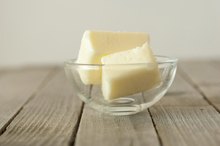What does fact checked mean?
At Healthfully, we strive to deliver objective content that is accurate and up-to-date. Our team periodically reviews articles in order to ensure content quality. The sources cited below consist of evidence from peer-reviewed journals, prominent medical organizations, academic associations, and government data.
The information contained on this site is for informational purposes only, and should not be used as a substitute for the advice of a professional health care provider. Please check with the appropriate physician regarding health questions and concerns. Although we strive to deliver accurate and up-to-date information, no guarantee to that effect is made.
Diabetic Diet Food List
While there may not be a cure for diabetes, proper management through diet, exercise and medication can help prevent diabetes related complications. Diet is especially important because the food you eat can increase blood sugar. You do not need to eat special foods, but you do need to make healthy food choices and eat them in moderate amounts.
Carbohydrate-Containing Foods
Carbohydrates in food increase blood sugar levels. As a diabetic, controlling the amount of carbohydrates you eat at each meal helps you better manage your diabetes 1. Carbohydrate-containing foods include all starches, fruits, milk and yogurts. The amount you need to eat each day depends on your calorie needs and blood sugar goals. Talk to your doctor or dietitian about your carbohydrate needs. The American Diabetes Association says most diabetics can start with 45 g to 60 g of carbohydrate at each meal. A single serving of a carbohydrate-containing food has about 15 g of carbohydrate. banana, 2 tbsp. of raisins, 1/2 cup of unsweetened canned fruit, 1/2 cup of juice, 1 cup of nonfat or 1 percent fat milk, 6 oz. container of low-fat or nonfat sugar-free yogurt and 1 cup of soy milk.
For better blood sugar control choose whole grain starches instead of refined flour starches and whole fruits instead of juice. The fiber in these foods slows digestion and the release of sugar into the bloodstream.
- Carbohydrates in food increase blood sugar levels.
- The American Diabetes Association says most diabetics can start with 45 g to 60 g of carbohydrate at each meal.
Nonstarchy Vegetables
The Best Gestational Diabetes Meal Plan
Learn More
Nonstarchy vegetables contain small amounts of carbohydrates, but you do not need to count it toward your total meal carbohydrate intake, according to the American Diabetes Association 13. Nonstarchy vegetables are low in calories and high in vitamins, minerals and fiber. Increasing your vegetable intake helps you manage your weight and diabetes. Healthy nonstarchy vegetable choices for diabetics include:
- spinach
- leafy greens
- cucumbers
- tomatoes
- artichokes
- asparagus
- broccoli
- cauliflower
- cabbage
- carrots
- mushrooms
- Nonstarchy vegetables contain small amounts of carbohydrates, but you do not need to count it toward your total meal carbohydrate intake, according to the American Diabetes Association 1.
- Nonstarchy vegetables are low in calories and high in vitamins, minerals and fiber.
Meat and Meat Substitutes
Meats do not contain carbohydrates and do not affect blood sugar 1. However, diabetics have higher rates of cardiovascular disease and need to limit their intake of foods high in saturated fat. Choose lean cuts of meat to curb your intake of saturated fat. Lean meat choices include:
- poultry
- fish
- pork tenderloin
- lamb chops
- veal
- beef eye-of-round roast
Meat substitutes for diabetics include tofu, low-fat cheese and eggs.
- Meats do not contain carbohydrates and do not affect blood sugar 1.
- However, diabetics have higher rates of cardiovascular disease and need to limit their intake of foods high in saturated fat.
Fats and Oils
What Happens to Sugar Levels in the Blood While Fasting?
Learn More
Intake of fats and oils should be limited to prevent excessive calorie intake. You should also choose heart-healthy monounsaturated fats such as olive oil and peanut butter, and polyunsaturated fats such as vegetable oil and walnuts. Other fats and oils for a diabetic diet include:
- margarine
- almonds
- soy oil
- canola oil
- salad dressing
- mayonnaise
Related Articles
References
Writer Bio
Jill Corleone is a registered dietitian and health coach who has been writing and lecturing on diet and health for more than 15 years. Her work has been featured on the Huffington Post, Diabetes Self-Management and in the book "Noninvasive Mechanical Ventilation," edited by John R. Bach, M.D. Corleone holds a Bachelor of Science in nutrition.









